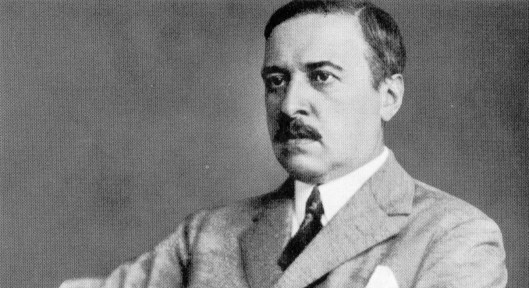Martha C. Nussbaum on Vienna, Strauss, Shakespeare, aging women and love:
'Denigrating myths about women abound, but one of the most enduring is the myth that aging women must graciously renounce sexual love, leaving it to the young.
Let’s look at one work, Richard Strauss’s 1911 comic opera, “Der Rosenkavalier,” that peddles this lie to enduring popular acclaim, and then at a far superior work, Shakespeare’s “Antony and Cleopatra,” which undermines the stereotype and illuminates some special attributes, even advantages, of sexual love between the aging.'
(...)
'And yet. The first lie of Strauss and his librettist Hugo von Hofmannsthal — the one I will call “the obvious lie” — concerns inevitability. For women, according to the opera, getting old means surrender and renunciation. The Marschallin’s life, as she ages, must end up as sexless as the convent girl’s life from which it emerged. Audiences typically swallow the lie and applaud her sage retreat. Strauss plays a double game: He gains a reputation for daring by broaching the unusual theme, and yet he comforts his audience by saying something utterly conventional about it.'
(...)
'Unlike the dreamy abstractions of the youthful love in “Romeo and Juliet,” “Antony and Cleopatra” depicts what we might call mature love — love between people who enjoy being grown-ups together and who have no desire to transcend human life, because they are having too much fun in life as it is.
Romeo and Juliet don’t eat; Antony and Cleopatra eat all the time. Romeo and Juliet have no occupation; Antony and Cleopatra are friends and supportive colleagues with a great deal of work to do running their respective and interlocking empires. Romeo and Juliet have no sense of humor; Antony and Cleopatra live by elaborate jokes and highly personal forms of teasing. (“That time, — Oh times! — I laugh’d him out of patience …”) Romeo and Juliet, utterly absorbed, pay no attention to others around them; Antony and Cleopatra love to gossip about the odd people in their world, spend evenings wandering the streets, watching the funny things people do, structuring love through daily life. Romeo and Juliet speak in terms of worshipful hyperbole. Antony knows how to make contact with Cleopatra through insults, even about her age; she knows how to turn a story about a fishhook into a running joke that renews laughter each time it is mentioned.'
Read the article here.
I find it awkward to take "Der Rosenkavalier" as an example if you want to say something about aging women and their representation in literature, movies or plays.
When I think of "Der Rosenkavalier" I think of octogenarians going to the theater on a Sunday afternoon in a provincial German town.
And is an operetta not supposed to peddle lies?
The comparison between Antony and Cleopatra and Romeo and Juliet appears to me a bit unfair as well. Obviously, Romeo and Juliet are quite young and being absorbed is a property of being in love.
Being in love is seldom mature. The aging lovers may be more interesting than the young lovers, but passion, whatever we mean by that, is the opposite of maturity, whether we like it or not. Sex is a fairly humorless endeavor, even though sometimes you can laugh shortly after having sex. Or before.
But of course and there I wholeheartedly agree with Martha Nussbaum, we should not fear the sexuality of aging women.
